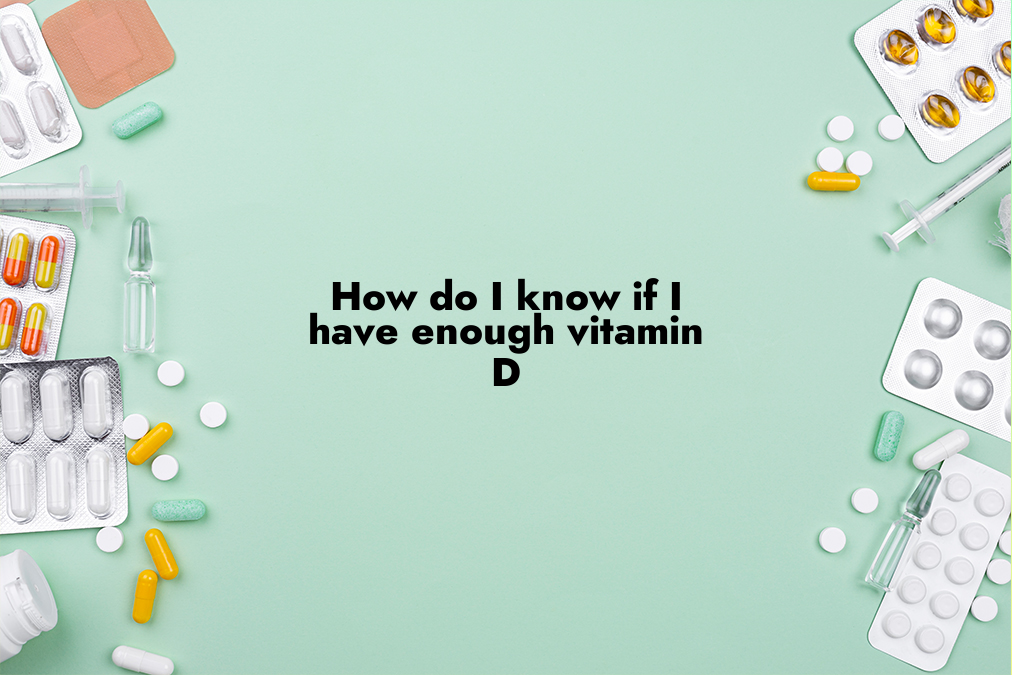Introduction
In a world that constantly bombards us with health advice and dietary recommendations, understanding whether you have enough of essential nutrients like vitamin D can be a perplexing task. This article aims to shed light on the importance of vitamin D, how to recognize its deficiency, and how to ensure you have an optimal level of this crucial nutrient.
The Sunshine Vitamin
What is Vitamin D?
Vitamin D, often referred to as the “sunshine vitamin,” plays a pivotal role in maintaining our overall health. It is a fat-soluble vitamin that is essential for various bodily functions. One of its primary functions is to regulate the absorption of calcium and phosphorus, critical for maintaining healthy bones and teeth. Additionally, it plays a role in immune system function, cell growth, and reducing inflammation.
Sources of Vitamin D
- Sun Exposure: The most natural way to acquire vitamin D is through exposure to sunlight. When your skin is exposed to UVB rays, it synthesizes vitamin D. However, factors like geographical location, time of day, and skin color can affect the amount of vitamin D your skin produces.
- Diet: While not as abundant as sunlight, you can obtain vitamin D from certain foods such as fatty fish (salmon, mackerel), fortified dairy products, and egg yolks. These dietary sources are especially crucial for individuals with limited sun exposure.
Signs and Symptoms of Vitamin D Deficiency
The Stealthy Deficiency
Vitamin D deficiency is often referred to as a “silent epidemic” because its symptoms can be subtle and easily overlooked. Here are some signs that might indicate you are lacking in this vital nutrient:
- Fatigue: Persistent tiredness and low energy levels can be early indicators of vitamin D deficiency.
- Bone and Muscle Pain: Aches and pains in your bones and muscles can be a result of weakened bones due to inadequate vitamin D.
- Frequent Infections: Vitamin D plays a significant role in supporting the immune system. If you find yourself falling ill frequently, it might be time to consider your vitamin D levels.
- Depressed Mood: Some studies suggest a link between low vitamin D levels and mood disorders like depression.
- Hair Loss: Although not as common, excessive hair loss can be associated with vitamin D deficiency.
Assessing Your Vitamin D Levels
The Importance of Testing
To accurately determine your vitamin D status, a blood test is necessary. This test measures the concentration of 25-hydroxyvitamin D in your blood, which is the most reliable indicator of your vitamin D levels.
Optimal Vitamin D Levels
The optimal level of vitamin D can vary from person to person, but generally, a blood concentration of 20-50 nanograms per milliliter (ng/mL) is considered sufficient for most people. However, some experts suggest aiming for the higher end of this range, especially if you have specific health concerns or risk factors.
Getting Your Daily Dose
Sunlight Exposure
To maintain adequate vitamin D levels through sunlight exposure, spend about 10-30 minutes in the sun several times a week. Be sure to expose your face, arms, and legs without sunscreen during this time. However, it’s crucial to balance sun exposure to avoid harmful UV radiation.
Dietary Sources and Supplements
Incorporate vitamin D-rich foods into your diet. If that’s challenging, consider vitamin D supplements, especially during the winter months or if you have limited sun exposure. Consult with a healthcare professional to determine the right dosage for you.
Conclusion
In conclusion, understanding your vitamin D levels is essential for your overall well-being. Vitamin D deficiency can manifest in subtle ways, affecting your energy, mood, and even your immune system. If you suspect a deficiency, consult your healthcare provider and consider a blood test. By maintaining optimal vitamin D levels through sunlight, diet, or supplements, you can support your health and well-being, ensuring you have enough of the “sunshine vitamin” to thrive.
So, how do you know if you have enough vitamin D? The answer lies in your awareness, a simple blood test, and a commitment to maintaining a healthy balance of sunlight and nutrition in your life. Remember, your health is your greatest asset, and vitamin D is a crucial player in that journey.

